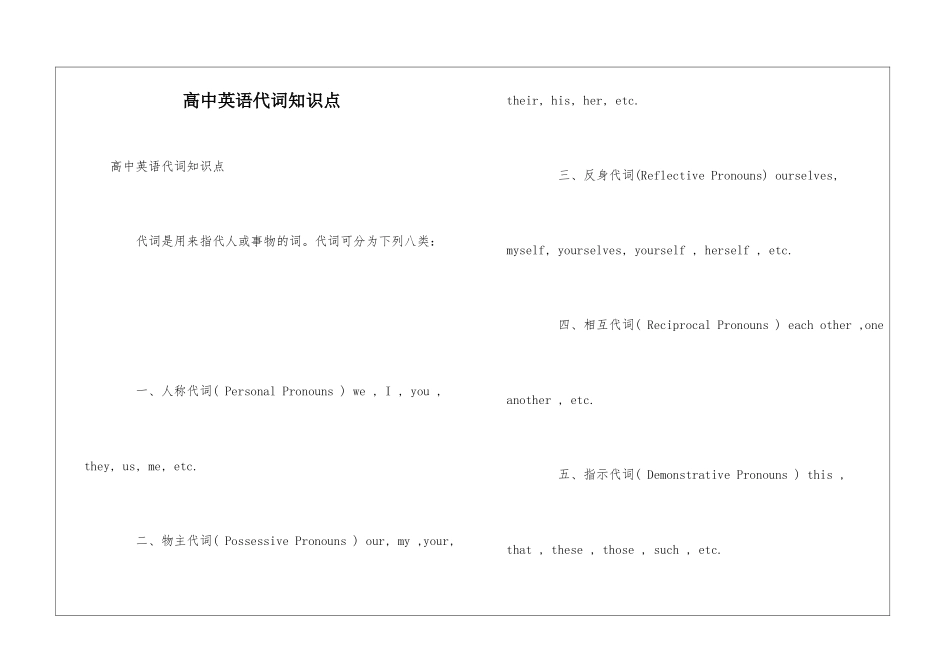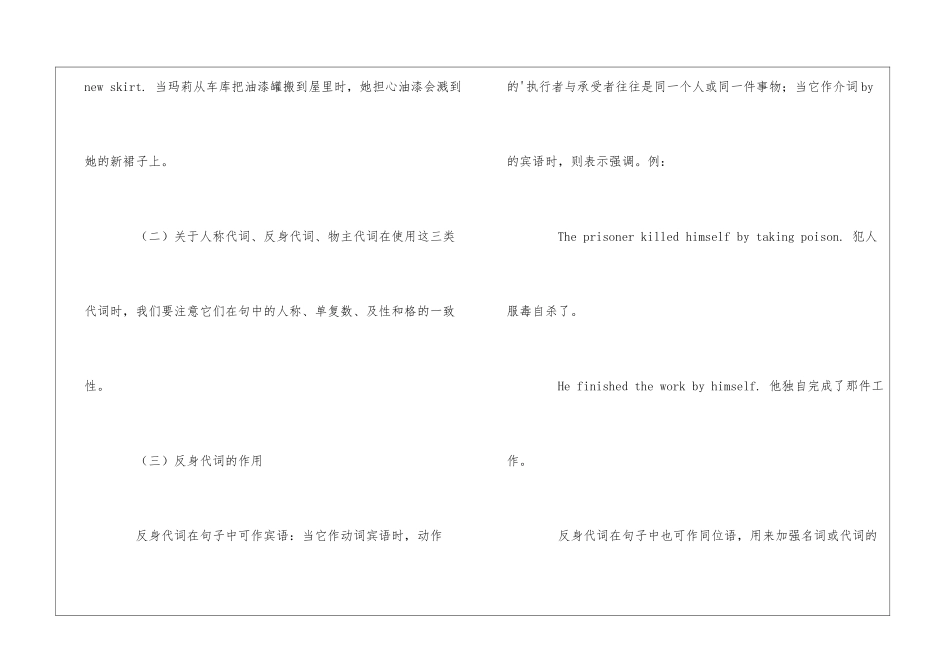高中英语代词知识点 高中英语代词知识点 代词是用来指代人或事物的词。代词可分为下列八类: 一、人称代词( Personal Pronouns ) we , I , you , they, us, me, etc. 二、物主代词( Possessive Pronouns ) our, my ,your, their, his, her, etc. 三、反身代词(Reflective Pronouns) ourselves, myself, yourselves, yourself , herself , etc. 四、相互代词( Reciprocal Pronouns ) each other ,one another , etc. 五、指示代词( Demonstrative Pronouns ) this , that , these , those , such , etc. 六、疑问代词( Interrogative Pronouns ) what, when, who, where, whose, etc. 七、关系代词( Relative Pronouns) what, when, who, where, whose , etc. 八、不定代词( Indefinite Pronouns ) any , some ,every , many , much , a little , etc. 我们对代词是很熟悉的,因此我不打算逐个地介绍每一类代词;我只想较具体地说明几个在使用代词时应注意的问题。 (一)指代必须准确无误 我们知道代词是用来指代人或事物的词,那么假如在使用代词时指代不清楚,就会引起他人的误解、费解、甚至不理解.例如: While carrying the paint can from the garage to the house, Marry was afraid that some of it might spill on her new skirt. 当玛莉从车库把油漆罐搬到屋里时,她担心油漆会溅到她的新裙子上。 (二)关于人称代词、反身代词、物主代词在使用这三类代词时,我们要注意它们在句中的人称、单复数、及性和格的一致性。 (三)反身代词的作用 反身代词在句子中可作宾语:当它作动词宾语时,动作的'执行者与承受者往往是同一个人或同一件事物;当它作介词 by的宾语时,则表示强调。例: The prisoner killed himself by taking poison. 犯人服毒自杀了。 He finished the work by himself. 他独自完成了那件工作。 反身代词在句子中也可作同位语,用来加强名词或代词的语气,强调某人亲自、 本人;这时它可能在名词、代词之后,也可能在句子末尾。例: The students will clean the classroom themselves. 学生们将自己打扫教室。 I myself heard him say it . 我亲耳听他说的。 (四)物主代词 形容词性物主代词只能作定语,例: My brother often does hi...


